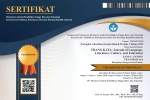The Impact of Cultural Mixing on Zainichi’s Individual Identity in The Novel Pachinko
DOI:
https://doi.org/10.54923/jllce.v5i1.108Keywords:
Assimilation, Cultural Identity, Cultural Mixing, Zainichi’s IdentityAbstract
Postcolonial literary studies aim to explore the impact of colonization, especially in the context of individual identity. The colonized identity is closely related to the culture of the colonizer who controls the territory. In the phenomenon of colonization, cultural clashes between colonizers and colonized are inevitable, which over time will undergo a process of assimilation referred to as a cultural hybrid in the postcolonial studies. The representation of cultural mixing consciously or unconsciously permeates the culture and life of society. This study explores the impact of cultural mixing on Zainichi's individual identity in the novel Pachinko by Min Jin Lee. Using a descriptive qualitative postcolonial approach, utilizing Homi K. Bhabha's hybridity theory and Stuart Hall's cultural identity to reveal the impact of cultural mixing on Zainichi's individual identity in each generation. This research finds that the realization of cultural assimilation goes through a very long stage. As experienced by several Zainichi characters from different generations, the process of achieving cultural assimilation has an impact on their identity and nationality. In addition, this research also provides an understanding that the development of Zainichi's search for identity is heading in a more stable direction.
Downloads
Downloads
Published
How to Cite
Issue
Section
License
Copyright (c) 2024 Sherly Amri, Imas Istiani

This work is licensed under a Creative Commons Attribution-ShareAlike 4.0 International License.





